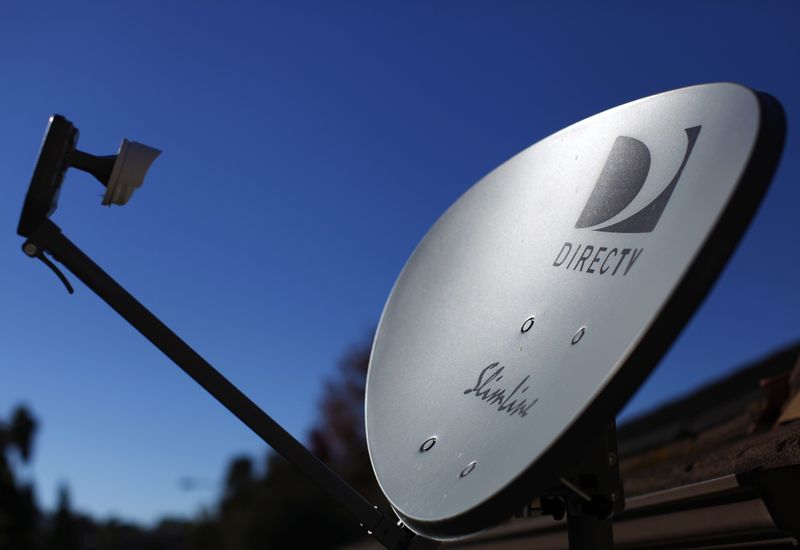By Anirban Sen
(Reuters) -Telecom operator AT&T (NYSE:) and its joint-venture partner TPG are in early-stage talks to merge their DirecTV satellite TV service with EchoStar owned Dish, a person familiar with the matter told Reuters on Friday.
The two companies first attempted to merge back in 2002 when the U.S. Justice Department blocked the tie-up. The combined entity would create the largest pay-TV service provider in the U.S. at about 16 million subscribers, if the talks are successful. The potential deal would likely attract antitrust scrutiny again although it might be able to clear regulatory hurdles this time as the industry has expanded substantially since then and DirecTV and Dish now compete against the likes of Comcast (NASDAQ:), Charter, Amazon (NASDAQ:) Prime, YouTube TV, and Netflix (NASDAQ:). A merger would enhance the combined company’s ability to negotiate with programmers, much like DirecTV is doing with Disney right now as the two sides are locked in a carriage dispute.
For Dish, the deal would allow them to focus all of their investments on building out their 5G wireless network.
“Rumors about a potential transaction involving DirecTV and Dish are nothing new, but we don’t comment on rumors and speculation,” a spokesperson for DirecTV said in an emailed statement to Reuters.
DirecTV and Dish have held on-and-off talks over the years since their first attempt to merge was blocked in 2002.
Dish did not immediately respond to Reuters requests for comments outside of business hours. TPG and AT&T declined to comment.
DirecTV is facing a public battle with Disney that has led to 11 million DirecTV customers losing access to ESPN in the middle of the U.S. Open tennis tournament.

The dispute is taking place against the backdrop of a competing plan by Disney, Fox and Warner Bros Discovery (NASDAQ:) to launch a streaming video joint venture devoted to sports, called Venu Sports.
The launch was temporarily blocked by a court injunction as part of a lawsuit filed by sports streaming rival FuboTV (NYSE:) accusing the media companies of anticompetitive behavior.

